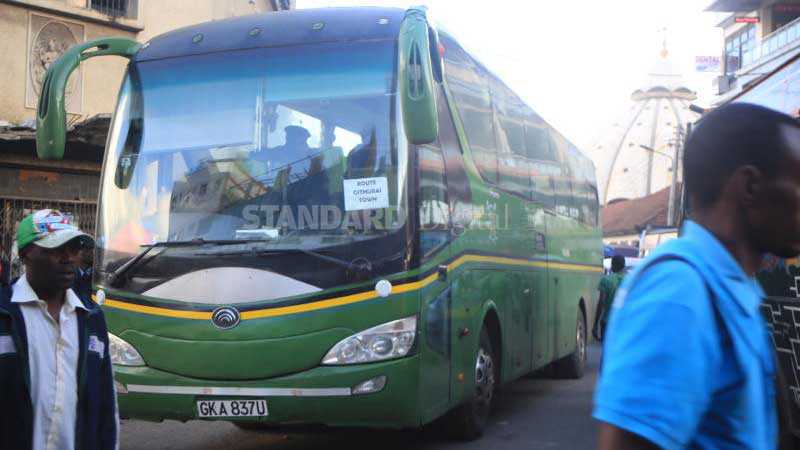×
The Standard e-Paper
Kenya’s Boldest Voice

When the green National Youth Service (NYS) bus pulled into the Kencom stage in the central business district, a large crowd of eager passengers pushed and scrambled to get inside, even though the door was locked.
Just in time, a young-looking NYS officer dressed in full camouflage kit stepped out of the bus with Sh20 tickets and calmly asked the crowd to queue. One by one, the passengers paid and climbed aboard.






